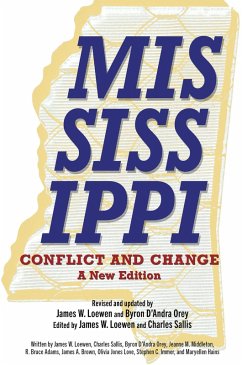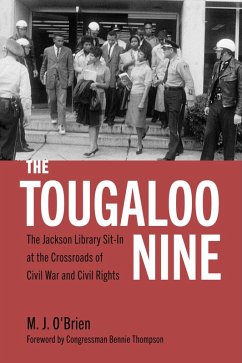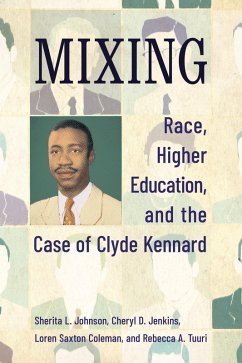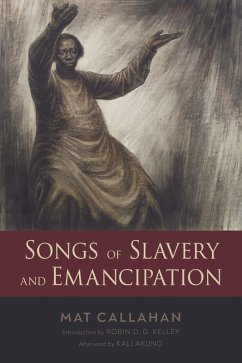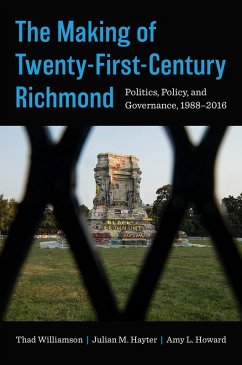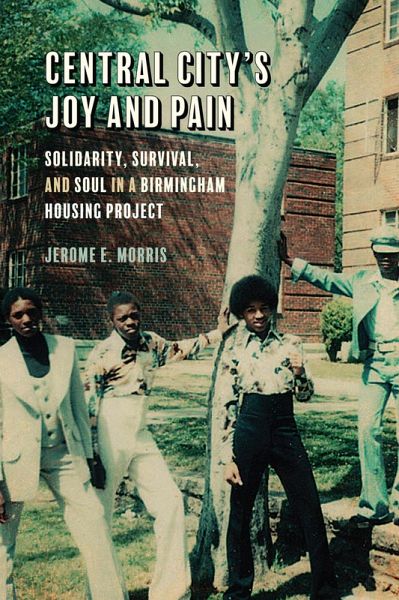
Central City's Joy and Pain (eBook, ePUB)
Solidarity, Survival, and Soul in a Birmingham Housing Project

PAYBACK Punkte
11 °P sammeln!
With Central City's Joy and Pain, Jerome E. Morris explores complex social issues through personal narrative. He does so by blending social-science research with his own memoir of life in Birmingham, Alabama. As someone who lived in the Central City housing project for two transitional decades (1968-91) and whose family continued to reside there until 1999, when the city razed the community, the author provides us with the often unexplored bottom-up perspective on Black public-housing residents' experiences.As Morris's experiential and authoritative narrative voice unfolds in the pages of Cent...
With Central City's Joy and Pain, Jerome E. Morris explores complex social issues through personal narrative. He does so by blending social-science research with his own memoir of life in Birmingham, Alabama. As someone who lived in the Central City housing project for two transitional decades (1968-91) and whose family continued to reside there until 1999, when the city razed the community, the author provides us with the often unexplored bottom-up perspective on Black public-housing residents' experiences.
As Morris's experiential and authoritative narrative voice unfolds in the pages of Central City's Joy and Pain, both the scholarly and lay reader are brought on a journey of what life is like for people who live and die at the intersection of race and poverty in a rapidly evolving southern urban center. The setting of a historic public-housing community provides a rich canvas on which to paint a world through the author's personal experience of growing up there-and his later observations as a researcher and academic.
Through its syncopation of personal stories and scholarly research, Central City's Joy and Pain captures what it means to be Black, poor, and full of dreams. In this setting, dreams are realized by some and swallowed up for others in the larger historical, social, economic, and political context of African Americans' experiences during and after the civil rights movement.
As Morris's experiential and authoritative narrative voice unfolds in the pages of Central City's Joy and Pain, both the scholarly and lay reader are brought on a journey of what life is like for people who live and die at the intersection of race and poverty in a rapidly evolving southern urban center. The setting of a historic public-housing community provides a rich canvas on which to paint a world through the author's personal experience of growing up there-and his later observations as a researcher and academic.
Through its syncopation of personal stories and scholarly research, Central City's Joy and Pain captures what it means to be Black, poor, and full of dreams. In this setting, dreams are realized by some and swallowed up for others in the larger historical, social, economic, and political context of African Americans' experiences during and after the civil rights movement.
Dieser Download kann aus rechtlichen Gründen nur mit Rechnungsadresse in A, D ausgeliefert werden.






